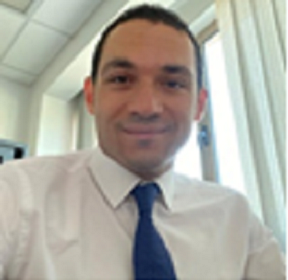Speakers
Amir R Ali
German University in Cairo CairoTitle: Integration of Smart Micro-Optical Sensors Technology for the Mechatronics Engineering in Robotics and Automation Systems
Abstract:
The micro-optical sensors are also known as the morphology dependent resonators (MDR). The principles of the measurement for these sensors are basically depending on changing the morphology for these sensing elements for any minute change on the surrounding medium. The quality factor (Q-factor) for these sensors reported to be ~108 which is classified as one of the highest values; and based on that it makes these devices to be one of the most ultra-sensitive sensors. These sensors are suitable to measure different phenomena in a very high resolutions up to the pico-scale similar to measuring the angular velocity on the joints used in robotics, the brain activity which is known by the action potential signals for the prosthesis devices. As the typical Mechatronics systems are keen to implement a typical closed-loop feedback control for any automation systems. So, using such extremely sensitive sensors could enrich the close-loop feedback algorithms in a very significant way. The importance of using these micro-optical sensors and integrated with the typical Mechatronics systems will be presented to introduce a new technology based on the opto-mecharonics devices. The purpose of this research in this filed is to integrate some of the optical components to the typical micro-electro-mechanical systems (MEMS) to build a new devices that will be very fast enough to deal with the control feedback and automation signals because it depends on speed of light. This research will focus into the process of fabrication, and signal processing for these new smart sensors. Also, the integration with several applications in mechatronics and robotics that used at any automated process will be presented during this research from not only the analytical but also the experimental and implementation point of views.
Biography:
Dr. Amir Roushdy Ali is the founder and the group director for the ARAtronics Research Center (Applied-Science & Robotics Laboratory for Applied-Mechatronics) at the German University in Cairo also he is the CEO & Co-founder and the Research and Development Executive at ONGINEERINGco Consulting Group. Dr. Amir is an Assistant Professor in Mechatronics Engineering Department at the German University in Cairo (GUC). Also, he is a Visitor Research Scholar in Mechanical Engineering Department at Texas Tech University (TTU). Dr. Amir received his PhD degree in Mechanical Engineering in 2015 from Southern Methodist University in Dallas, Texas, USA in the field of Micro-Optical Sensors to develop prosthetic limbs for amputees and connected directly with their brain using optical fiber technologies. Dr. Amir's research focuses on developing micro-resonator-based opto-mechanical sensors technology using the whispering gallery mode (WGM) phenomena. In 2017, Dr. Amir was appointed as a member in the Editorial Board of American Journal of Optics and Photonics. Currently, Dr. Amir is a reviewer at the Optical Society of America (OSA) and a reviewer for the American Institute of Physics (AIP). Dr. Amir received the notable alumni award from the Southern Methodist University, Dallas, TX, USA in 2017. He has been awarded the Dean's and the ME Department's award for best presentation at the SMU Research day in 2013. Dr. Amir also won the best presentation award at the "Research Improve" sponsored by the Lyle School of Engineering. Dr. Amir is a member of the Society of Photo-optical Instrumentation Engineers (SPIE), American Society of Mechanical Engineers (ASME), American Institute of Aeronautics and Astronautics, (AIAA) and (IEEE). He is also a member of Texas Society of Professional Engineers (TSPE). His area of expertise in the Opto-Mechatronics systems for sensing applications, Biomedical sensing devices, Locomotion and Vibration, Haptic Interfaces, Composite control strategies, Robotics and flexible manipulators, Brain computer interface, Neuroscience and electrophysiology.

